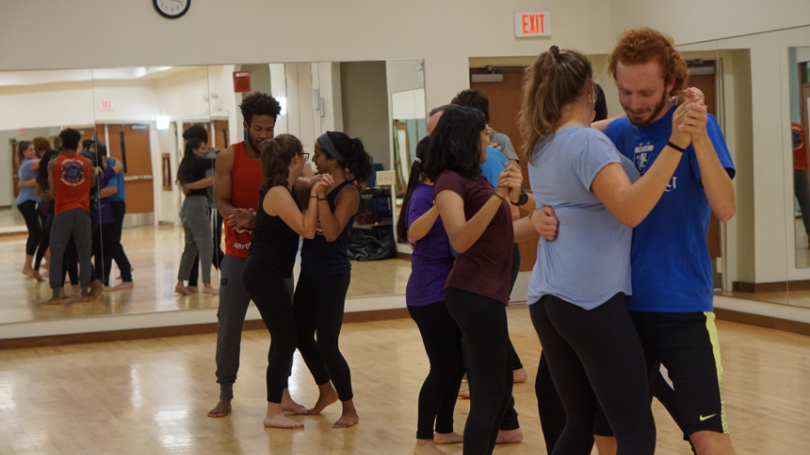
- Public Policy
- Leadership
- Funding
- News & Events
- About the Center
Back to Top Nav
Back to Top Nav
Back to Top Nav
Back to Top Nav
Each fall, winter, and spring, the Rockefeller Global Leadership Program (RGLP) brings together student leaders to increase their understanding of global leadership and intercultural competency. Through weekly sessions with speakers and a culminating experience to either Boston or Montreal, the students are able to learn about themselves and cross-cultural leadership.
Fall 2019 participants were asked to write a blog post, reflecting on the topics and lessons learned throughout the program. Below are reflections from the Fall 2019 cohort who spent a weekend in Montreal as part of their culminating experience.
Through RGLP, I came to more fully understand that cultures vary not only in their surface-level aspects, but also vary in styles of communication and attitudes towards problem-solving and work, among other things. When working together, individuals from different cultures can share their different styles and attitudes with each other, thereby synergistically creating better outcomes than those obvious to any single cultural perspective. In order to benefit from the differing perspectives of different cultures, though, people must be able to adapt to those cultures’ differing styles and attitudes to effectively communicate and collaborate across cultures. In this, they must be able to recognize the cultural differences present in their cross-cultural communication and change their own behavior to better accommodate those differences: adaptation. These cultural differences vary from situation to situation and from individual to individual, so this cultural adaptation is a learned skill.
Further impressed upon me in RGLP was the importance of this learned skill of cultural adaptation for our cohort’s role as leaders of a future, globalized world. As the world becomes more interconnected through technology and as multinational corporations dominate the world economy, cross-cultural communication is becoming more and more common both in the workplace and in everyday life. To become a leader in this increasingly globalized world, one must be well-equipped with this skill of cultural adaptation so as to navigate prominent intercultural spaces and utilize the synergistic possibility of cross-cultural collaboration.
On our program trip to Montreal, we got a chance to experience first-hand these differences in culture through a variety of activities and experiences. Particularly important to me was our activity on Deaf culture with Seeing Voices Montreal. In this activity, we learned about the presence and nature of Deaf culture, something which I had not yet considered, from a member of the Montreal Deaf community. We also got the chance to experiment with cultural adaptability, if only in a limited fashion, through basic sign language communication. During our interaction with a Deaf person, through an interpreter, I found it difficult to keep my visual attention on the Deaf presenter and had to adapt so as to not visually focus on the interpreter. Furthermore, in signing with my peers, it was initially difficult to remember and form the signs for even a basic greeting, but eventually got over this small hurdle. In both cases, once I got past the initial discomfort, I found it exciting and enjoyable to adapt my culture even in these limited ways. This taught me that there is not only utilitarian value, but personal value in cross-cultural communication and that if I become properly skilled, I can find great joy in the more expansive intercultural experiences I will have throughout my life.
-Written by Alexander Hirsch ’22, Fall 2019 RGLP Participant
Disclaimer: The views and opinions expressed here are the author’s own and do not necessarily represent the views and opinions of the Rockefeller Center or constitute an endorsement by the Center.